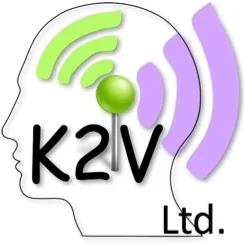The Oil & Gas sectors are very adept at recruiting real talent on the basis of skills and capability, often overlooking what candidates actually know. Decision makers need expert knowledge to assist in making company shaping decisions; how can they unlock the rich breadth and depth of knowledge lying dormant in their organisations without the distortion of perception that comes with the cognitive bias which all humans possess?
Lower oil prices have resulted in the oil & gas sector haemorrhaging knowledge, which would normally not be an issue because letting people go is part of the cyclical regeneration for any industry. The problem today is that many of the younger professionals are now choosing to leave the oil & gas sector altogether, which increases the demographic imbalance that we have been steadily resolving over the last decade. However, if individual organisations don't actually know what knowledge they are letting go of, they can’t realistically replace it. Increased lateral mobility of the globalised professional workforce means that the business needs to manage knowledge to the same extent that Human Resources currently manage skills and capability. Ignoring knowledge is damaging to our industry at a time when we need to consolidate what we know to prevent ourselves from repeating mistakes. Now more than ever, we need to build and use knowledge to articulate value in basins around the world, improving decision making by collapsing cognitive bias and eradicating perceptual blindness. The industry needs to re-evaluate how knowledge is used in support of decision making, which means overcoming aversion to capturing perceptions (not facts) and removing the non-uniqeness associated with cognitive dissonance.
Where knowledge is most keenly felt is in exploration, or more specifically New Ventures (exploration NBD). Traditionally explorers wrote reports, documenting in some detail what they knew within the context of a business opportunity. Report writing was an efficient way to capture what was known at that time, allowing successors to assimilate what is relevant to the present day. The pace of working has changed now so that staff may be re-deployed on to the next project before the previous one has been properly closed out, making it impossible to document adequately what they know, often only registering the business outcome. The result is that the same work may have to be repeated, often within a year of having been closed out, or worse - it is skimmed over. If all that we know about an opportunity is industry level common knowledge, how can we justify paying a competitive price for entry? Is our perception of unique value that others can’t see worth that much to us? If we can’t even verifiably achieve common knowledge, then how do we know we aren’t missing something fundamental in our drive to a deal?
Sounds familiar to you?
Information Technology today can allow opportunities to remain live to ever shifting business circumstances, maintaining a base level of knowledge with triggers set to warn us when an opportunity once declined becomes attractive in response to changing thresholds that have altered screening values.
K2V (Knowledge to Value) Limited arose out of the need to capture knowledge having observed over 4 decades how knowledge has been overlooked. K2V has developed workstreams involving Spatial Knowledge Management to harvest knowledge in your organisation by internally crowd sourcing and applying that knowledge simply to collapse cognitive bias through collaborative knowledge sharing or knowledge stacking. The methodologies not only improve the quality of decision making by unlocking the knowledge lying dormant in your organisation but they fundamentally change the culture around knowledge: empowering knowledge holders to contribute what they know in a way that rewards and motivates individuals to share what they know.
Perceptions are an inevitable part of being human and are important because it is people who make decisions, not data or facts. Technical validation processes are often used to help decision makers narrow their choices, which tend to deliver single-string solutions (you get what you think you know). We should not be creating dogma by filtering out the diversity of perceptions; we should be embracing diversity of thought and make it work to differentiate our organisation from competitors. An organisation which ignores knowledge owned by that organisation is setting itself up for failure as assuredly as it would be by ignoring data or facts.

